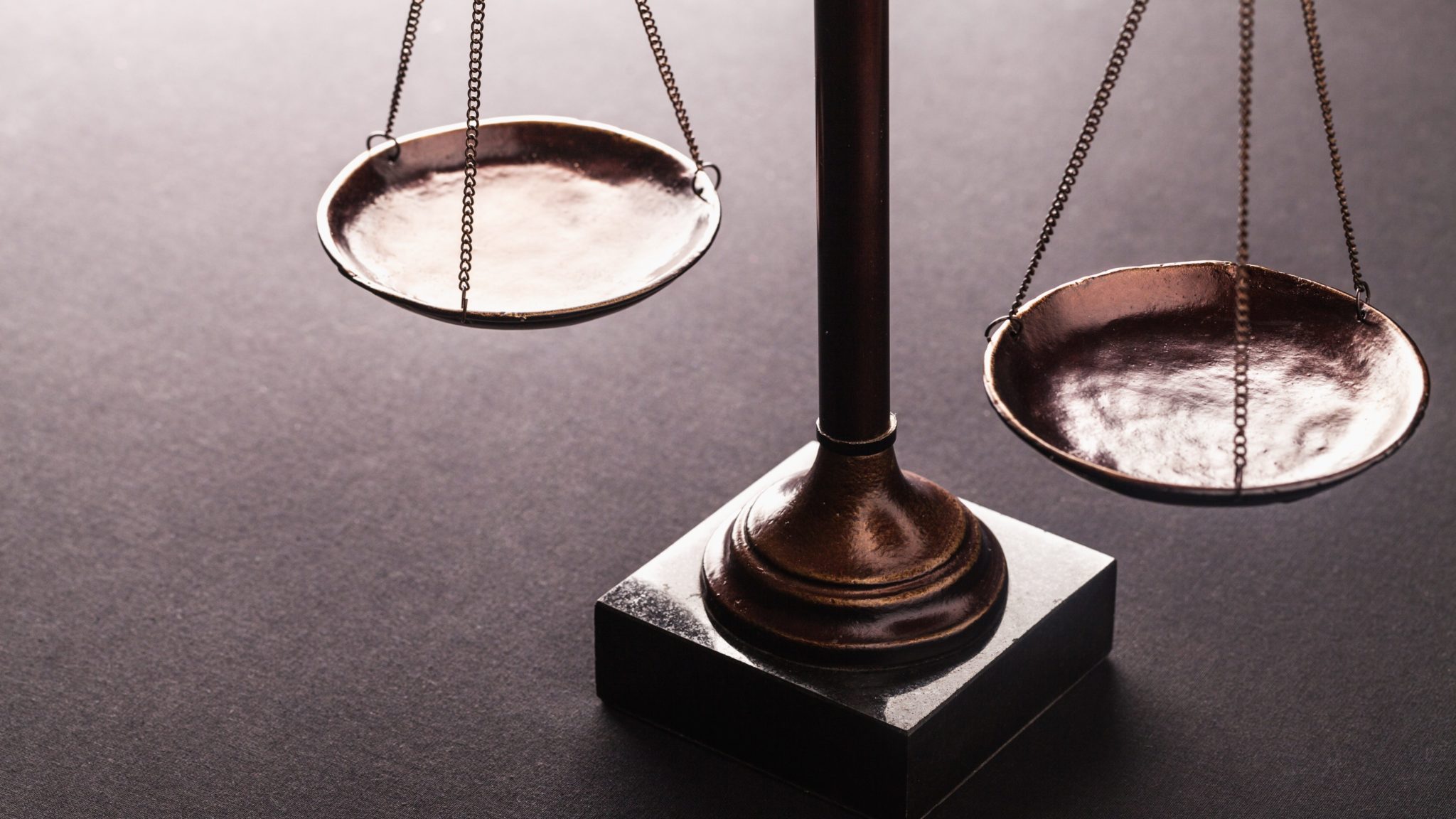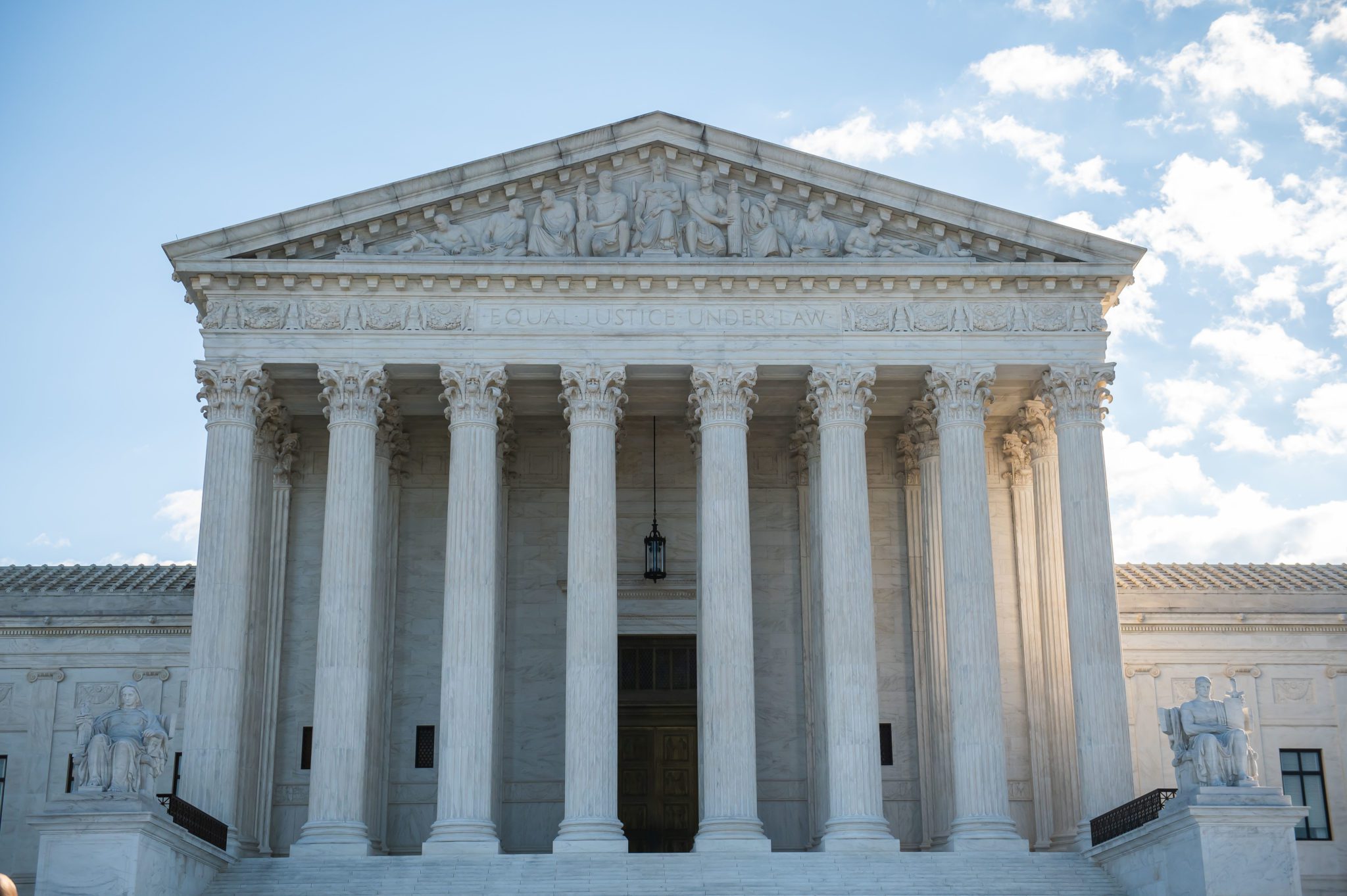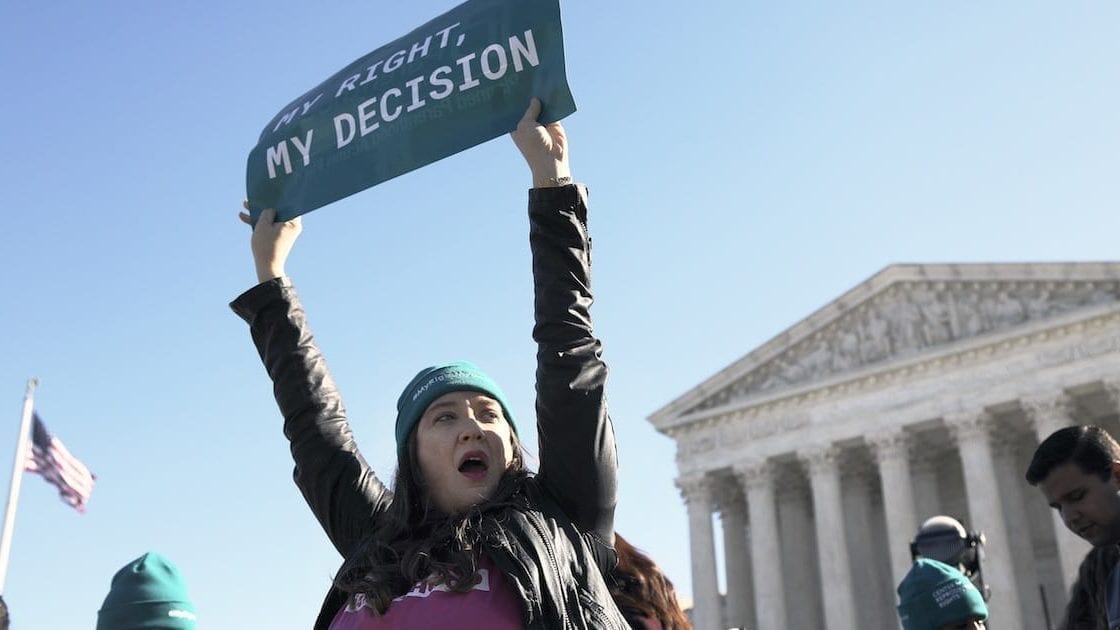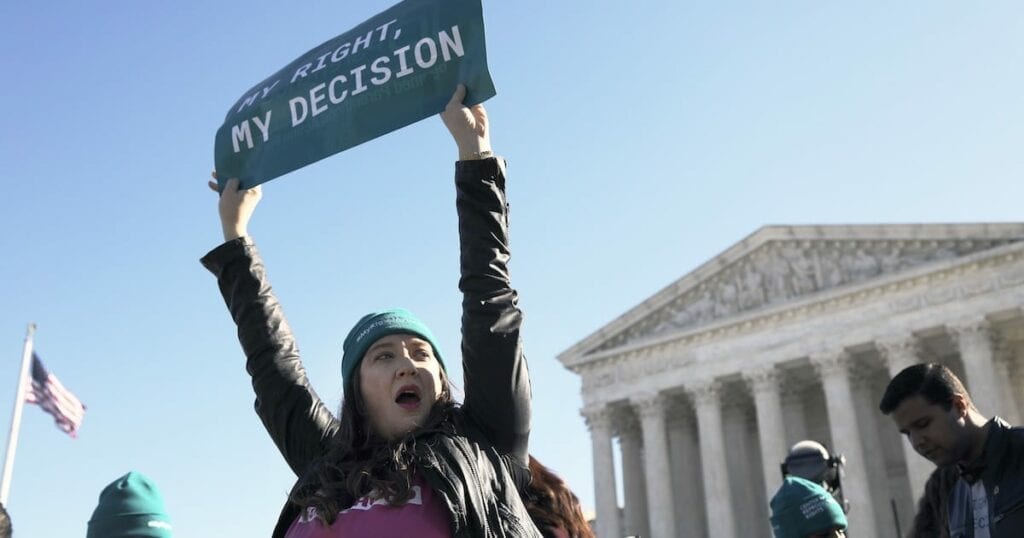Precedent and the Rule of Law: Spotlight on Dobbs v. Jackson Women’s Health
Nearly 50 years of precedent hang in the balance in upcoming U.S. Supreme Court case.

On December 1, the U.S. Supreme Court will hear oral arguments in Dobbs v. Jackson Women’s Health Organization, a case in which the state of Mississippi has asked the Supreme Court to overturn nearly 50 years of precedent affirming the constitutional right to abortion.
Rule of Law
The “rule of law” is a legal principle holding that a society’s laws must be consistently applied, publicly available, and subject to an independent judiciary that adheres to precedent.
The case—which challenges Mississippi’s law banning abortion after 15 weeks of pregnancy—is the most consequential Supreme Court case for abortion rights in generations. Dobbs v. Jackson Women’s Health was brought by the Center for Reproductive Rights and its partners in 2018 on behalf of Jackson Women’s Health Organization, the last abortion clinic in Mississippi.
Nearly 50 years ago, the Supreme Court recognized the constitutional right to abortion prior to viability in the landmark case, Roe v. Wade (1973). The Court has repeatedly upheld Roe ever since, including in Planned Parenthood of Southeastern Pennsylvania v. Casey in 1992. Mississippi’s ban is in blatant violation of decades of precedent affirming the constitutional right to abortion.
The Court’s decision to review the Mississippi abortion ban marks the first time it will consider the constitutionality of a pre-viability ban on abortion since the 1973 Roe decision.
Listen to oral arguments on December 1.
Dobbs v. Jackson Women’s Health: Supreme Court oral arguments
A livestream of oral arguments will be available on the Supreme Court’s website on Wednesday, December 1 at 10 a.m.
Constitutional and Legal Experts File Amicus Briefs in Support of Center’s Challenge
Constitutional scholars and legal experts have submitted several amicus briefs, also known as “friend of the court” briefs, in support of the Center’s case. The briefs describe how the right to abortion is firmly grounded in the U.S. Constitution and warn that a decision upholding Mississippi’s ban would upend decades of settled precedent and, in so doing, undermine the rule of law.
SCOTUS has Repeatedly Affirmed that the Right to Abortion is Firmly Grounded in the U.S. Constitution
In Roe v. Wade, the Supreme Court held that the Fourteenth Amendment of the U.S. Constitution protects the right to decide whether to continue a pregnancy prior to viability, and has repeatedly reaffirmed this right.
In its brief, the American Bar Association (ABA)—the largest voluntary association of lawyers and attorneys in the world—points out that “the right to choose whether to bear a child is an integral part of our understanding of constitutionally protected liberty” that is firmly grounded in decades of Court precedent.
The ABA writes: “Roe and Casey thus built on the Court’s prior precedents protecting the right to make personal decisions regarding marriage, family, and childrearing, pointing to cases dating back to the 1920s…The right described in Roe and reaffirmed in Casey was not called into being out of thin air, but was the result of years of consideration by the Court of what liberty encompasses when applied to the realm of children and family.”
Read more about the case.
Dobbs v. Jackson Women’s Health Organization
In this case, the most consequential abortion rights case in generations, the U.S. Supreme Court will consider a Mississippi abortion ban that directly challenges Roe v. Wade.
Similarly, as scholars of constitutional law write in their brief that for “over a century,” the Court has “repeatedly acknowledged” that the Constitution’s Due Process Clause “provides individuals with certain unenumerated, fundamental rights grounded in liberty, a concept older than our Constitution itself.” And the Court was thus “guided by the meaning of the liberty interest expounded in these prior decisions” when it concluded in Roe that the Constitution’s guarantee of liberty encompasses a person’s decision to have an abortion.
Upholding Precedent is Crucial for the Rule of Law
The “rule of law” is a legal principle holding that a society’s laws must be consistently applied, publicly available, and subject to an independent judiciary that adheres to precedent. The rule of law is crucial for the creation of a stable, orderly, and just society.
Consistent adherence to, and application of, the principle of stare decisis is integral to upholding the rule of law. As the Court has explained, “stare decisis is a foundation stone of the rule of law.” It provides the foundation for a legal system that is predictable and stable—and one not subject to dramatic reversals in law or how it is applied. The ABA states that it has “long viewed stare decisis as fundamental to the rule of law and central to this Court’s special role as the exemplar of the rule of law. To abandon it here would severely damage both.”
Under the legal principle of stare decisis, meaning “to stand by that which is decided,” the Supreme Court adheres to its prior decisions in all but the most exceptional circumstances—circumstances that are not met in Jackson Women’s Health.
As leading scholars and legal practitioners argue in their briefs to the Court, under the principle of stare decisis, there is no basis for the Supreme Court to upend longstanding precedent recognizing the constitutional right to abortion.
In their brief, constitutional law scholars state that “…stare decisis requires that the Court uphold Roe and Casey, and the viability line drawn therein. Stare decisis is the cornerstone of the Court’s jurisprudence and the bedrock of its legitimacy, and there is no justifiable reason to abandon this principle here. The viability line is logical and workable, and one of many lines this Court has drawn to protect constitutional liberties.”
As the ABA writes in its brief, “For forty-eight years, the right to decide to have an abortion before viability has become embedded in the fabric of our society and the understanding of women as a fundamental right that affects women in every way from economics, to health, to career choices and family life. The revocation of such a right would be unprecedented. It would be a devastating repudiation of stare decisis, jeopardize the public’s faith in our legal institutions, and have a cruel effect on the lives and expectations of millions of women.”
These briefs are among over 50 amicus briefs filed supporting this case. For more information, go to Dobbs v. Jackson Women’s Health Organization.
Read more:
- Constitutional Law Scholars Amicus Brief in Dobbs v. Jackson Women’s Health
- American Bar Association Amicus Brief in Dobbs v. Jackson Women’s Health
- Read more about the amicus briefs filed in Dobbs v. Jackson Women’s Health Organization: Links to the more than 50 briefs filed in the case.
- Read more about the Center’s case, Dobbs v. Jackson Women’s Health Organization.
- The case explained: Watch Center attorneys explain the stakes in the case.



